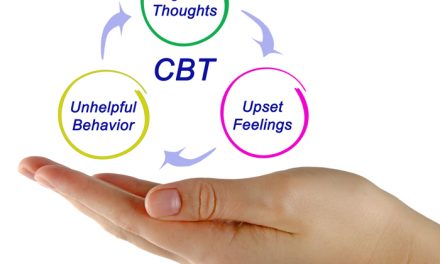When you are in recovery from a substance use disorder, it is extremely important to stay focused on your ongoing and most important goal: staying sober one day at a time.
That is easy to say and hard to do. In fact, with so many demands on our attention, your focus is likely pulled in all sorts of directions. And that can put your sobriety at risk.
Many of Us Have a Problem Focusing on Just One Thing
How are your multitasking skills?
If you are like many people, you probably think you are a better multitasker than you actually are. In our busy lives—lives in which busyness is practically a status symbol to many—the idea of being able to do more than one thing at a time is attractive.
We try to do it at work—like when you leave your camera off in a Zoom or Teams meeting so that you can answer emails while the conversation among your peers rolls on (a practice that can be pretty embarrassing if someone asks you a question and you haven’t been paying attention).
We try to do it home—like when you are watching TV and using your smartphone at the same time (a practice that is remarkably prevalent).
We try to do it while we are driving—like when you are using your phone while also trying to navigate traffic (a practice that is all too often deadly).
The fact of the matter is that we simply are not wired to successfully focus on multiple tasks at once.
That is why it can be quite helpful to spend some time learning to focus on each moment as you experience it. Doing so can take you out of multitasking mode. More importantly, it can support your sobriety.
Let’s consider two practices that encourage participants to bring their full attention to each moment.
Bringing Mindfulness to Mind
Mindfulness practice involves sitting comfortably and quietly while bringing your full attention to the natural rhythm of your breathing. The practice has its roots in Buddhist thought, but it has become a popular approach to finding focus for all sorts of people regardless of their religious affiliation (or lack thereof).
The overarching idea is that the experience of bringing your attention to your breathing while you allow thoughts and feelings to come and go will help you bring the same sort of gentle, non-judgmental attention to each moment of your day. Developing a regular mindfulness practice can serve you well in recovery—both on a day-to-day basis and on those occasions when cravings arise.
At first blush, the practice seems remarkably straightforward and simple, but it can take some time to start to feel like you are making progress. There are plenty of online resources to help as well as excellent books that can give you more background on mindfulness and tips for getting started.
Are You a Go for Yoga?
Maybe the idea of sitting quietly with your eyes closed while you breathe in and out sounds, frankly, terrible to you. Perhaps you are an active individual who gets way too antsy when asked to sit for any period of time. Maybe you are the kind of person who falls asleep anytime and anywhere if you close your eyes for more than a minute or two. Or maybe mindfulness simply does not appeal to you—but you would still like to get the kinds of benefits the practice offers to folks who are in recovery.
In any and all of those cases, yoga might be a great alternative for you. You can think of yoga as a kind of active mindfulness practice. While yoga has a decidedly physical element as you move from pose to pose, it also encourages you to focus on your breath and to center yourself in the present moment.
As with mindfulness, there are plenty of resources to get you going if you would like to give yoga a try.
This Doesn’t Have to be an Either/Or Situation
We just want to be clear that you do not have to choose between mindfulness practice and yoga. If you find both useful, then by all means, do both. There is a good chance you will find that both approaches to staying present in the moment support your mental health, your physical health, and your sobriety.
Help is Available at The Aviary Recovery Center
When you are struggling with drugs or alcohol, you are likely struggling to focus on much of anything other than the substances. Nevertheless, it is essential that you turn your attention to the most important thing you can do for yourself: getting help to reclaim and maintain your sobriety.
At The Aviary Recovery Center—located in Eolia and Kirkwood, Missouri—we offer personalized treatment for substance use disorders and the mental health disorders that may be entangled with them. You can count on evidence-based approaches to care provided by experts who will treat you with respect and empathy.
If you are ready to get sober, we are ready to help.










